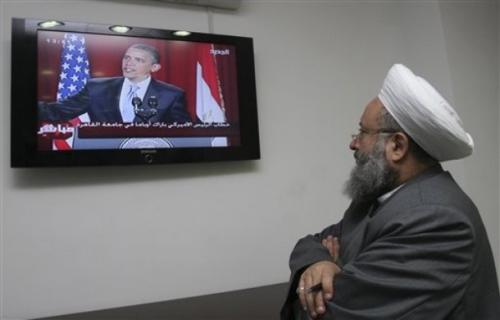This post is part 3 in a series exploring the biblical principles around retirement and saving for retirement.
We have been trained in our culture and in our Christianity to value retirement. What does it mean to retire? To stop working.
To withdraw from one’s occupation, business, or office; stop working. – American Heritage Dictionary
Leave one’s job and cease to work, especially because one has reached a particular age. – Compact Oxford Dictionary.
Some declare the Bible has anything to say about retirement, thus it’s amoral and anything goes. While our translations of the Bible may not contain the word “retirement,” the Bible has a lot to say about work. Since retirement is simply to cease working, we must understand what the Bible teaches about work.
Why do we work?
Who should work?
How long should we work for?
Are we to cease working, and if so, when?
Work is not a curse. It’s tempting to think so because of the curse in Genesis 3:
And to Adam he said,
“Because you have listened to the voice of your wife
and have eaten of the tree
of which I commanded you,
‘You shall not eat of it,’
cursed is the ground because of you;
in pain you shall eat of it all the days of your life;
thorns and thistles it shall bring forth for you;
and you shall eat the plants of the field.
By the sweat of your face
you shall eat bread,
till you return to the ground,
for out of it you were taken;
for you are dust,
and to dust you shall return.”
(Genesis 3:17-19 ESV)
Work is referenced here, but Adam had already been put to work.
The LORD God took the man and put him in the garden of Eden to work it and keep it.
(Genesis 2:15 ESV)
Further, Eve was created to help Adam.
Then the LORD God said, “It is not good that the man should be alone; I will make him a helper fit for him.”
(Genesis 2:18 ESV)
Work was not the result of the curse. Work is an essential reason we exist. So what was cursed? Adam wasn’t cursed. The ground was.
Conclusion 1: When we choose to stop working, we’re going against how God created us to be.
Work is also one of the 10 commandments:
“Remember the Sabbath day, to keep it holy. Six days you shall labor, and do all your work, but the seventh day is a Sabbath to the LORD your God. On it you shall not do any work, you, or your son, or your daughter, your male servant, or your female servant, or your livestock, or the sojourner who is within your gates. For in six days the LORD made heaven and earth, the sea, and all that is in them, and rested on the seventh day. Therefore the LORD blessed the Sabbath day and made it holy.
(Exodus 20:8-11 ESV)
Humankind’s calling as seen in Adam is reconfirmed as a command here. One of the reasons we work is because it is commanded, as part of loving God. How is it loving God? By modeling our lives after him. God worked for 6 days and rested, so we are commanded to work for 6 days and take 1 day of rest, every day a reminder of God.
So we’ve seen 3 reasons to work from Genesis and Exodus:
- It’s how God created us to be.
- God commands us to.
- It is living a life modeled after God.
Conclusion 2: When we choose to stop working, we are considering ourselves exempt from God’s commands.
Conclusion 3: When we choose to stop working, we cease living a life modeled after God.
The New Testament reiterates the importance of working:
Now we command you, brothers, in the name of our Lord Jesus Christ, that you keep away from any brother who is walking in idleness and not in accord with the tradition that you received from us. For you yourselves know how you ought to imitate us, because we were not idle when we were with you, nor did we eat anyone’s bread without paying for it, but with toil and labor we worked night and day, that we might not be a burden to any of you. It was not because we do not have that right, but to give you in ourselves an example to imitate. For even when we were with you, we would give you this command: If anyone is not willing to work, let him not eat. For we hear that some among you walk in idleness, not busy at work, but busybodies.
(2 Thessalonians 3:6-11 ESV)
There’s multiple principles here: the importance of paying for what one uses; the importance of toil and labor; the consequence of not working is to become a busybody. The word “busybody” in the Greek is a hapax logomena, that is, a word only used once in the Bible, so the meaning isn’t totally clear. It may mean busying one’s self with non-work, such as a hobby; it may mean meddling in the affairs of others. One thing is certain from the context:
We become bad people when we choose to stop working.
Conclusion 4: When we choose to stop working, we ignore Paul’s warnings of what we will become.
Conclusion 5: When we choose to stop working, Christians should keep away from us. Yikes!
There is no biblical declaration that it is ever ok to choose to stop working. By holding to the idea that saving for a self-sufficient retirement is appropriate, we’re saying the rich can purchase exemption from God’s commands. Would we do this with any of the other 9 commandments? Is it okay for the rich hold another god before God? To steal? To dishonor their parents? To murder?
On passage that is used to justify retirement is the end of Numbers 8, which the ESV even subtitles “Retirement of the Levites:”
And the LORD spoke to Moses, saying, “This applies to the Levites: from twenty-five years old and upward they shall come to do duty in the service of the tent of meeting. And from the age of fifty years they shall withdraw from the duty of the service and serve no more. They minister to their brothers in the tent of meeting by keeping guard, but they shall do no service. Thus shall you do to the Levites in assigning their duties.”
(Numbers 8:23-26 ESV)
The Levites were not to stop working! They were to stop doing service in the tent of meeting and change jobs to serve by keeping guard.
It’s quite true that we may not be able to go full pace at our jobs for our entire lives. The biblical response is not to stop working, but to find a new career that we can do well.
Choosing to stop work is in contradiction to the Bible.
Agree or disagree? Let me know in the comment section. I’m just working out what all of this means and am writing up the biblical arguments as I see them. Please feel free to show where I’ve gone wrong.









 The Bible says that no one is born a Christian. There’s interaction between a person and the supernatural, and the person enters into a relationship with the one triune deity, recognizes Jesus as the master (Lord) of their life. Romans 10:9-10 is the closest the New Testament has to a step-by-step process of salvation:
The Bible says that no one is born a Christian. There’s interaction between a person and the supernatural, and the person enters into a relationship with the one triune deity, recognizes Jesus as the master (Lord) of their life. Romans 10:9-10 is the closest the New Testament has to a step-by-step process of salvation: In contrast, one can be a Muslim by conversion or by birth.
In contrast, one can be a Muslim by conversion or by birth.


